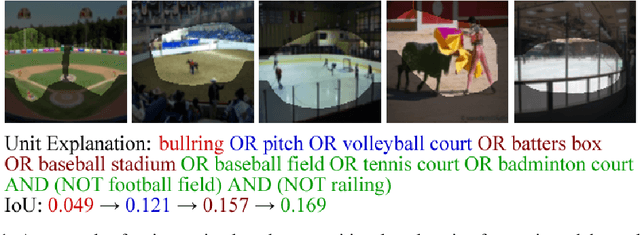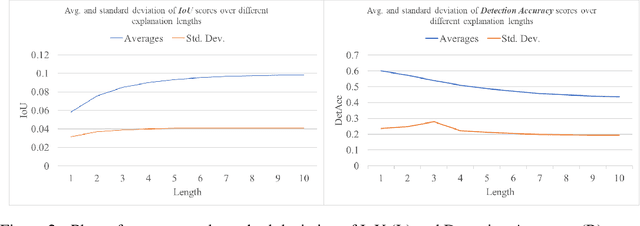Sayo M. Makinwa
Detection Accuracy for Evaluating Compositional Explanations of Units
Sep 16, 2021



Abstract:The recent success of deep learning models in solving complex problems and in different domains has increased interest in understanding what they learn. Therefore, different approaches have been employed to explain these models, one of which uses human-understandable concepts as explanations. Two examples of methods that use this approach are Network Dissection and Compositional explanations. The former explains units using atomic concepts, while the latter makes explanations more expressive, replacing atomic concepts with logical forms. While intuitively, logical forms are more informative than atomic concepts, it is not clear how to quantify this improvement, and their evaluation is often based on the same metric that is optimized during the search-process and on the usage of hyper-parameters to be tuned. In this paper, we propose to use as evaluation metric the Detection Accuracy, which measures units' consistency of detection of their assigned explanations. We show that this metric (1) evaluates explanations of different lengths effectively, (2) can be used as a stopping criterion for the compositional explanation search, eliminating the explanation length hyper-parameter, and (3) exposes new specialized units whose length 1 explanations are the perceptual abstractions of their longer explanations.
 Add to Chrome
Add to Chrome Add to Firefox
Add to Firefox Add to Edge
Add to Edge